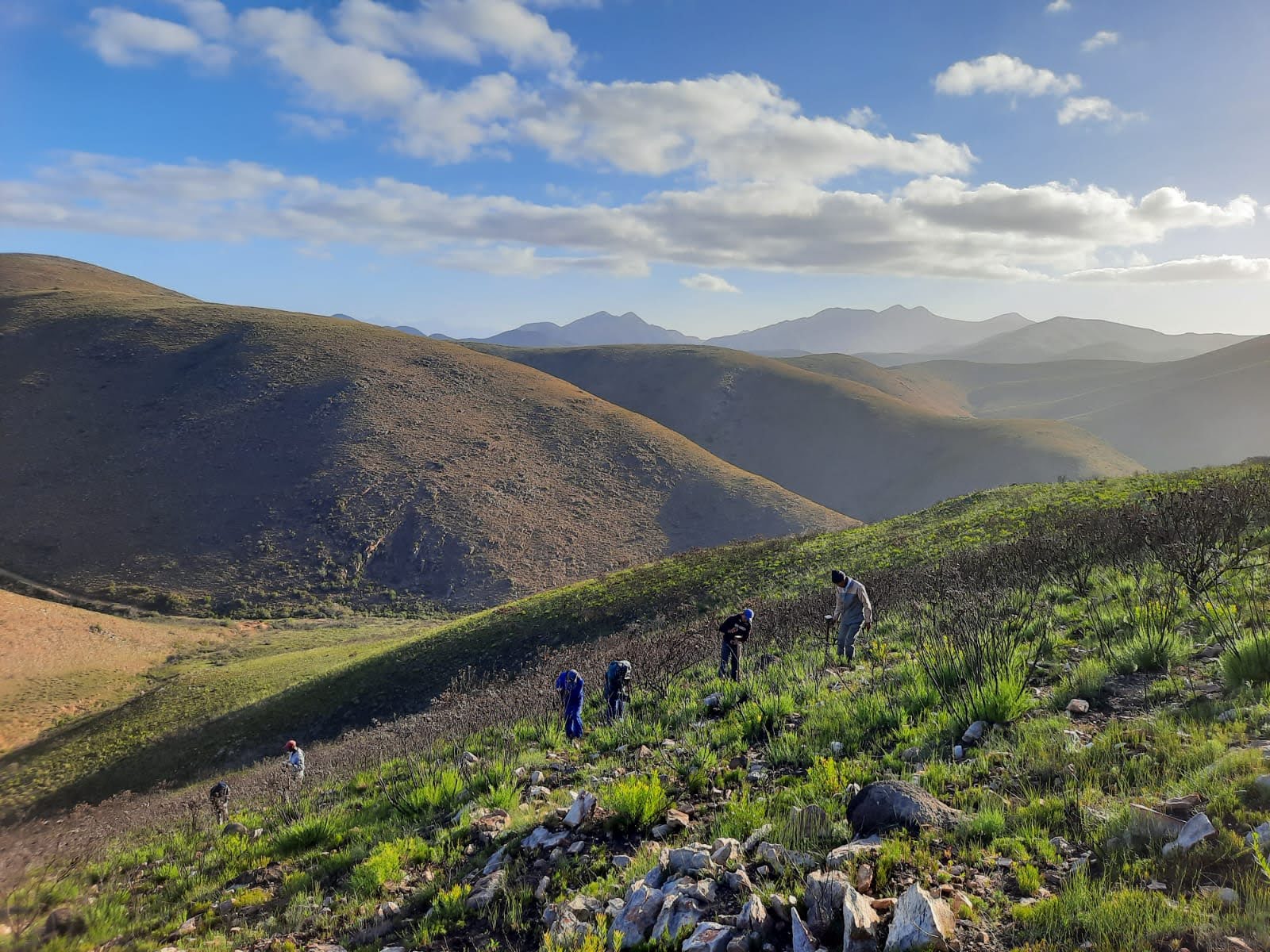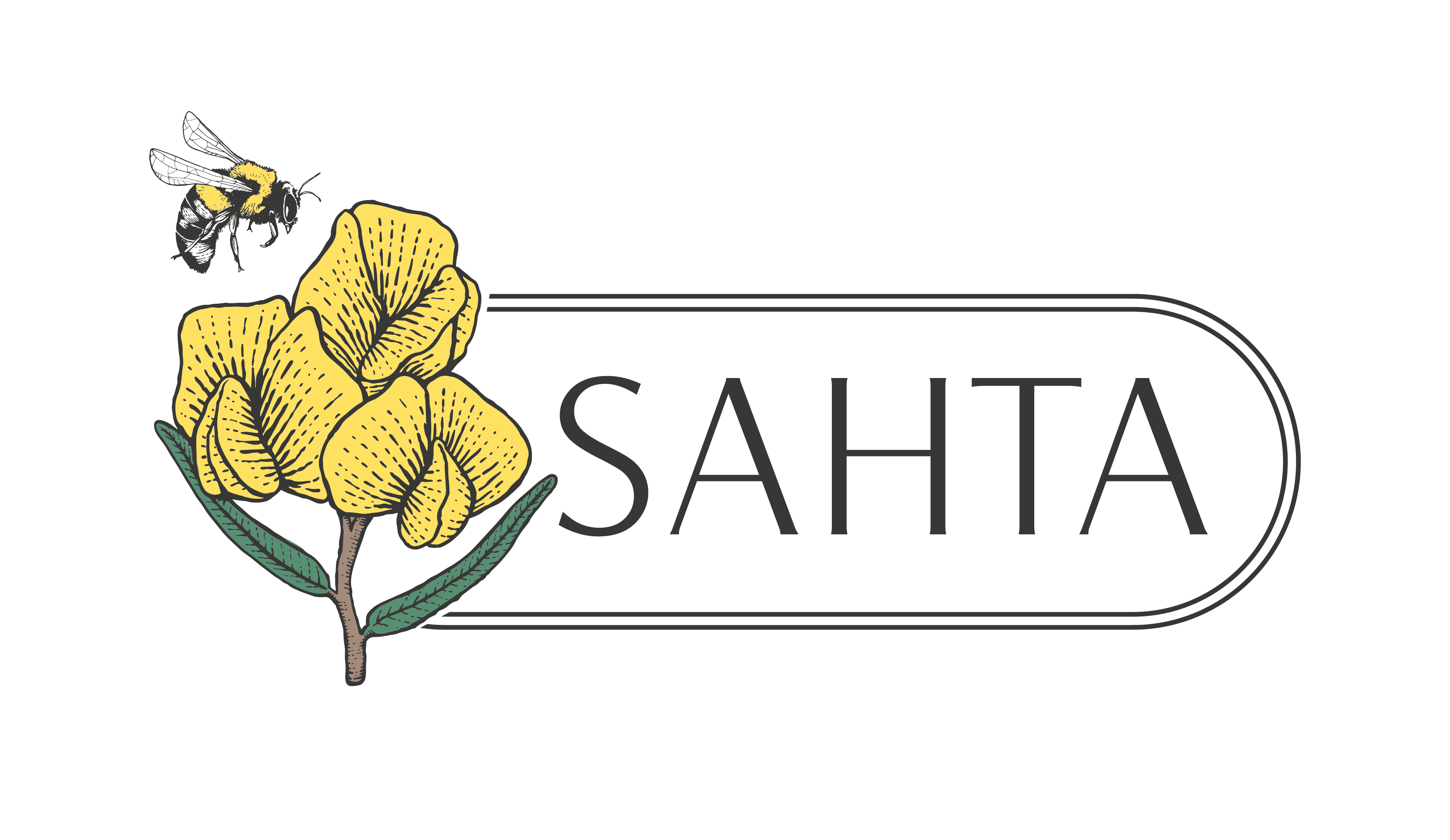
Written by Matthew Sephton & Liz Metcalfe
Living Lands has been supporting the sustainable management of wild honeybush since 2016. We see the sustainable use of wild Cyclopia species as being a driver of improved land management and an important resource that – if used sustainably – can support local economies and provide jobs. Through our work, we have shown how the wild harvesting of honeybush can incentivise the removal of invasive alien plant species and support fire management whilst involving harvesters in landscape and resource stewardship.
We are based in the Langkloof region and currently offer the following services, all of which are based on practical field work by our experienced, locally-based team which includes ecologists, harvesters and agronomists. Our work directly supports the implementation of the Honeybush Biodiversity Management Plan.
Honeybush Resource Assessments
We assist landowners to understand honeybush resources by conducting in-field Resource Assessments. This information is used to estimate the yield of honeybush that is able to be sustainably harvested from a given area and is the basis of a sustainable harvest plan.
Sustainable Harvest Plans
From the Resource Assessments, we develop Sustainable Harvest plans to ensure the long-term production of the honeybush resource. Sustainable Harvest Plans include the demarcation of management blocks
and harvesting planning, as well as holistic management such as invasive alien species removal and fire management.
Harvester Training and Honeybush Extension Advice/Support
Living Lands conducts ongoing harvester training in line with the Guideline for the Sustainable Harvesting of Wild Honeybush that encompasses both local, traditional knowledge as well as ecologically-sound harvesting best practices.


Our on-the-ground engagements with harvesters and farmers supports the roll out of the guidelines across the Langkloof region, as well as providing technical advice regarding wild and cultivated honeybush management.
Wild Honeybush Augmentation
Working in collaboration with farmers and harvesters, Living Lands has developed an ecologically-sensitive methodology that farmers and harvesters can implement to bolster existing wild honeybush populations or rehabilitating areas where honeybush has been lost. This involves planting locally collected seeds back into areas under harvest management, and is an important part of maintaining long-term yields.
Species-wide Honeybush Resource Assessment and Non-Detrimental Findings reports
Living Lands, in collaboration with Rhodes University is in the process of conducting an assessment of the state of C. intermedia and C.
subternata populations across both the Eastern and Western Cape. The resource assessment contributes information to the process of conducting a Non-Detriment Finding (NDF). This is a standardised process used globally which deals with identifying the risk to survival of a (wild) species if it is harvested and part of the global ‘biotrade’ market.
Both the NDF and the resource assessment will support the development of a Biotrade certification standard for South Africa which is appropriate and accessible to South African Biotrade enterprises (at no cost) and which will be accepted by the international market.
For further information, please contact Matthew Sephton (matt@livinglands.co.za) or Liz Metcalfe (liz@livinglands.co.za)

